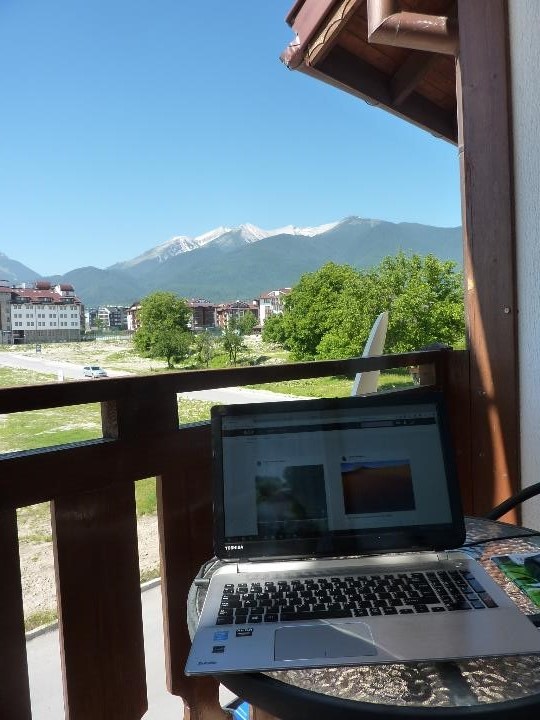Taking your editing or proofreading service on the road
Posted on 11th October 2017; revised and updated 19th March 2018
In September 2017, I presented a session at the Society for Editors and Proofreaders' annual conference about living and working as a digital nomad and was pleasantly surprised at how popular it was and how interested people were in my stories. I therefore thought a blog series about key considerations when working this way might be useful for other editors and proofreaders looking to make the most of the flexibility of this line of work, or indeed anyone offering remote services in other fields.
The blog series will go as follows:
- This lovely introduction post
- Planning for the road – what to do before setting off
- Practicalities of proofreading and editing while being a digital nomad
- Main factors in determining where I want to proofread
- The nitty-gritty of a location-independent proofreading service
- Budgeting for work and travel
- Balancing being a tourist while running a proofreading business
- Pros and cons of being single or in a couple while travelling and working as an editor or proofreader
- Summary of the series and a Q & A
I will try not to repeat what I've already written in a previous blog post about taking my proofreading service on the road but will start with a few general elements in this introductory post.
What is a digital nomad?
I confess to not being keen on the term digital nomad, but as it's commonly used and most people seem to understand what it means, I think it makes sense to stick with it. I prefer location-independent, and if LIP Service didn't have such negative connotations, I'd love to have called myself that, short of course for Location-Independent Proofreading Service.
In reality though, being location-independent can come in many forms: you could have a home office but regularly work from a café or library or other family member's house; you could have a house in the UK and a holiday home somewhere with more reliable weather; you could have a permanent base and just like long holidays where you're happy to work; or you could be more permanently on the move, and how often you change locations will obviously vary according to your preferences, visa requirements and personal circumstances.
One of the reasons I did the PTC proofreading course and wanted to become a freelance proofreader and copy-editor was because I always thought my husband (Pete) would need to travel for his work (he is a chartered engineer though now also works as an editor, predominantly for technical documents) and I didn't want to just follow him around like a lost puppy. By having a location-independent proofreading business, I knew I would be able to work wherever he needed to go, and though he never did need to travel much with work, this obviously meant my business was at a good stage to be taken on the road when we both decided we hadn't seen enough of the world.

What if you don't have a business already?
I had the benefit of already having a successful editing and proofreading business up and running, with regular clients, a healthy supply of queries from potential clients and a network of colleagues and friends for support. But Pete started relatively from scratch, albeit with an in-house mentor (me!) and advice on what to do to kick-start his technical editing business, and I know other people who have made a go of their businesses when they're already on the road. We had healthy savings behind us and my risk-averse nature means this would be my recommendation but I do know some people seem to like the thrill of living hand to mouth and they set off with little in the bank but plenty of drive and determination to make it work.
The increase in online training options, such as those provided by CIEP and the Publishing Training Centre, mean you can be anywhere in the world to do this, though this will obviously require time to complete the courses and how that fits with earning money at the same time might not suit you if you don't have a decent bit of savings behind you.
Many people go to countries with low cost of living to start their businesses and that could of course be an option, but as it's not what I did or have experience of, I can't really say much more on that.
Edited in March 2020 after the Society for Editors and Proofreaders became the Chartered Institute of Editing and Proofreading.
Written by Kate Haigh.
